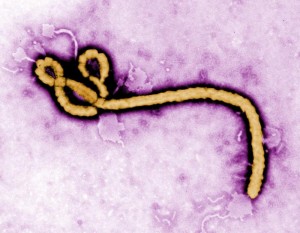The Council on Foreign Relations (CFR) yesterday hosted an on-the-record conference call on West Africa’s Ebola outbreak. CFR’s senior fellow for global health and author of the infectious disease classic, The Coming Plague, Laurie Garrett gave her thoughts and expertise on the dire situation in Africa.

Confirming what some health professionals on the ground, such as Doctors without Borders (MSF), Garrett said, “It is, indeed, out of control. It has been for quite some time. I don’t think it’s clear that it ever was in control at any given moment since it first broke out in March in Guinea.”
Concerning health care workers in West Africa, Garrett notes: “You’ve had more than 60 health care workers succumb to the disease, including the most famous physicians in the battle against Ebola from Uganda, from Liberia, and from Sierra Leone.”
In addition, this Ebola outbreak has had issues with containment due to the actions of local populations. Garrett says we have seen resistance from the populations all over these three countries, but especially in Sierra Leone and Liberia, against all sorts of quarantine measures, efforts to remove the ailing from their households so that they don’t infect household members and place them in quarantine, efforts to enforce quarantine, and efforts to deal with safe burials or cremations, rather than the traditional approaches of families preparing the bodies for burial and thereby getting exposed to the contaminating fluids.
Garrett also pointed out the lack of funds with the World Health Organization, calling the UN health agency “essentially bankrupt”.
Related: Ebola treatments Q & A
Like many of us that have been following this from the beginning, she points out it only received any real public attention in the United States when there were Americans infected.
What does Garrett have to say about the now much publicized “experimental serum”, ZMapp, which has many feeling very optimistic?
“I would caution everybody to recall that there is no statistical power whatsoever in an N of 1. One person does well on a drug. That equals one person might have done well because they were a healthy individual to begin with, might have been sheer shake of the dice.
“You have absolutely no evidence the drug was why the individual is doing better. And the same could be said when it’s an N of 2. This is not statistical power, certainly not sufficient that it should result in spending millions of dollars to rev up production of one specific drug.”
For more infectious disease news and information, visit and “like” the Infectious Disease News Facebook page

